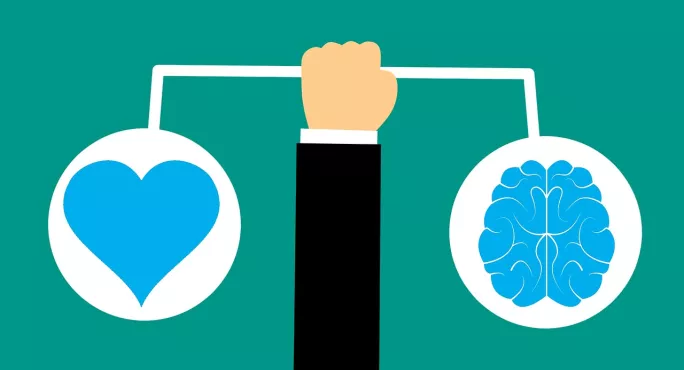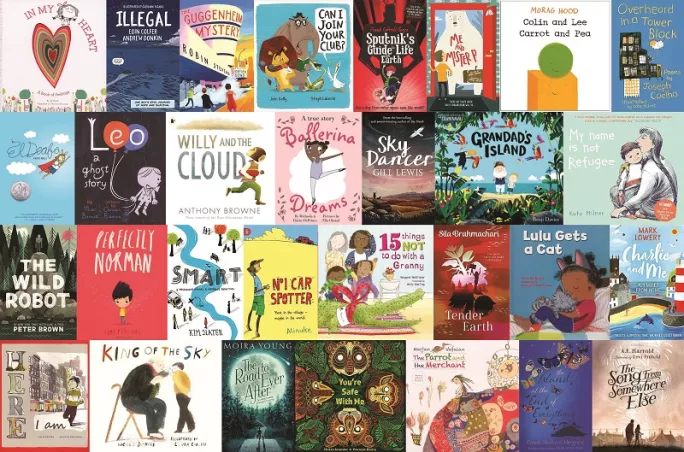
- Home
- How reading can boost empathy
How reading can boost empathy

Here’s a question for you: how empathic do you think you are? As a teacher, it’s likely your answer will be ‘very’. But how empathetic do you think your pupils are? This answer may vary more.
In a society in which hate crimes are rocketing and public discourse is arguably more divisive ever, being able to empathise - the ability to understand and share the feelings of another person - is something that every member of our society should be able to do.
But what about those who seemingly have low levels of empathy? Can they become more empathic? Is it a skill that can be taught?
Yes, says Miranda McKearney, founder of community interest company Empathy Lab.
“All of us can improve our empathy skills because our brains are plastic. We’re not just born with a fixed quantity of empathy. And psychologists advise us that it’s best to do that young, in school-aged pupils,” McKearney says.
At this point, teachers across the country may groan: is ‘teaching empathy’ yet another task to add to their already long to-do lists?
No, says McKearney, the answer to increasing empathy lies in something that schools already practice every single day: reading.
“There’s some really brilliant scientific research coming through which shows that immersion in the right kind of literature and identifying with book characters and their emotions builds real-life empathy,” she explains.
“What the research shows is that books are a bit like flight simulators in which you’re learning to fly, but you’re not actually flying. The research likens the effects of literature to that: effectively you’re able to practice your social skills by becoming involved in a character and following their emotions. This expands your own understanding of other people’s feelings, and you can recognise those feelings in yourself.
“It’s not rocket science is it? You know that when you’re reading it massively helps you to understand the world and how other people work.”
Empathy Day
Today marks the second national Empathy Day - an event which was piloted by Empathy Lab last year, and which McKearney hopes will become as big as World Book Day. Following on from their 2017 success, Empathy Lab is encouraging schools to #ReadForEmpathy, and has released a list of 30 books to aid four to 11-year-olds with this.
The theory behind the movement is that immersion in literature leads to increased empathy and literacy, which leads to social awareness, and ultimately, increased social activism.
Jane Flood is the head of learning at Netley Marsh CE Infant School, one of 10 “pioneer schools” that Empathy Lab works with.
“We introduced it to the children with a picture of a pair of shoes,” says Flood. “Empathy to our children is about standing in someone else’s shoes, seeing it from someone else’s viewpoint.”
Netley Marsh has been working with Empathy Lab for two and a half years and the ‘reading for empathy’ theme is firmly embedded in the school’s culture. Not only do the children now read more in the classroom, but they read more at home, too. The school hosts ‘empathy cafes’ for parents to attend, in which they talk about the books their children have been reading.
Flood says that the school seen an increase in empathic behaviour (the children are a lot nicer to each other, she says), and also a rise in reading levels.
And reading takes pride of place in today’s Empathy Day activities. Pupils at Netley Marsh will be hosting the ‘Empathy Awards’: which will see the children vote for the book character (pre-selected from five stories) they believe has the most empathy. The awards will be attended by two special guests: author and illustrators Sue Hendra and Shoo Rayner, both of who have a strong affiliation with Empathy Lab, and a belief that reading is the key to building empathy.
“When you read a book it’s the closest you can possibly get to getting inside somebody else’s brain, and looking out through their eyes,” says Rayner. “When you’re watching a film, you’re seeing someone else do something, but when you’re reading you can really become that person and be in a terrifying, or funny situation, and see the world from other people’s point of view. Which of course, is what empathy is all about.”
Empathy Lab’s 30 books to build empathy

The No.1 Car Spotter Flights the Factory, Atinuke
Leo: a Ghost Story, Mac Barnett
El Deafo, Cece Bell
The Wild Robot, Peter Brown
Willy and the Cloud, Anthony Browne
Tender Earth, Sita Brahmachari
Overheard in a Tower Block, Joseph Coelho
Sputnik’s Guide to Life on Earth, Frank Cottrell Boyce
Grandad’s Island, Benji Davies
King of the Sky, Nicola Davies
Ballerina Dreams, Michaela and Elaine DePrince
Illegal, Eoin Colfer and Andrew Donkin
Me and Mister P, Maria Farrer
The Parrot and the Merchant, Pippa Goohart and Marjan Vafaian
The Song from Somewhere Else, A.F Harrold
Colin and Lee, Carrot and Pea, Morag Hood
Can I Join Your Club?, John Kelly
Here I Am, Patti Kim
Sky Dancer, Gill Lewis
Charlie and Me: 421 Miles from Home, Mark Lowery
15 Things Not to Do with a Granny, Margaret McAllister
Lulu Gets a Cat, Anna Mcquinn
The Island at the End of Everything, Kiran Millwood Hargrave
My Name is Not Refugee, Kate Milner
Perfectly Norman, Tom Percival
Smart, Kim Slater
You’re Safe With Me, Chitra Soundar
The Guggenheim Mystery, Robin Stevens
In My Heart: A Book of Feelings, Jo Witek
The Road to Ever After, Moira Young
Register with Tes and you can read five free articles every month, plus you'll have access to our range of award-winning newsletters.
Keep reading for just £4.90 per month
You've reached your limit of free articles this month. Subscribe for £4.90 per month for three months and get:
- Unlimited access to all Tes magazine content
- Exclusive subscriber-only stories
- Award-winning email newsletters
You've reached your limit of free articles this month. Subscribe for £4.90 per month for three months and get:
- Unlimited access to all Tes magazine content
- Exclusive subscriber-only stories
- Award-winning email newsletters



